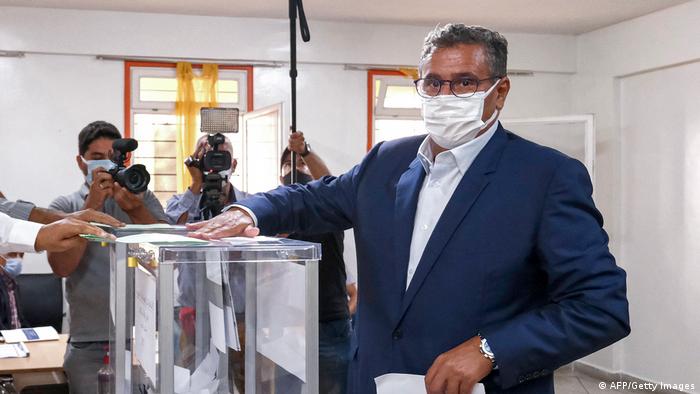According to the Moroccan constitution of 2011, the head of government must come from the ranks of the party that has emerged on top in the legislative elections, which puts the outgoing Minister of Agriculture in a good position.
In Morocco, it was probably a rude awakening for Saâd-Eddine El Othmani and his supporters on Thursday, September 9. The outgoing Prime Minister and his Party for Justice and Development (PJD), which has been in power for 11 years, were the big losers in the general elections held the day before in the kingdom. Losing his seat as a deputy in Rabat, the capital, the leader of the moderate Islamists saw his party suffer a serious setback, going from 125 deputies out of 395 to only 12. In other words, a slap in the face.
Because of clear signs of wear and tear, poor results in terms of purchasing power and employment, and the new system for distributing seats (based on the total number of registered voters in the constituency, not on the number of votes cast), few people expected a repeat of the high scores to which the Moroccan branch of the Muslim Brotherhood has been accustomed for the past ten years. But no one expected such a violent fall of a PJD whose general record of the last years in power is not without good things, like the exemplary management of the Covid-19 epidemic by the team of the outgoing Prime Minister Saâd-Eddine El Othmani.
According to the provisional results published on Wednesday night by the Ministry of the Interior, the defeat of the moderate Islamists mainly benefits the National Rally of Independents (RNI), a liberal party and its leader Aziz Akhannouch, the outgoing Minister of Agriculture, who has long nurtured the dream of taking over the government. Not far from doubling its 60 seats in the outgoing legislature, the RNI won 102 seats, according to these results. The Authenticity and Modernity Party (PAM), which also claims to be part of the liberal current and a fierce opponent of the islamists, came second with 87 seats, according to the same results.
It was followed by the Istiqlal Party (Independence Party, in French), the country’s oldest political party, which won 81 seats. Next in line were the social democrats of the Socialist Union of Popular Forces (USFP), which won 34 seats, leaving a dozen other parties to share what remains of the 395 seats in the House of Representatives, whose future members were elected at the same time as the regional and municipal councils.
The constitution adopted in 2011, which at the time spared Morocco the effects of the famous “Arab Spring” that destabilized or swept away many regimes in North Africa and the Middle East, stipulates that the King designates the head of government from the ranks of the party that came out on top in the legislative elections. In all likelihood, this will place the head of the RNI in the position of future head of the Moroccan government.
This man, reputed to be one of the biggest fortunes in the Kingdom, has been at the head of the Ministry of Agriculture for fourteen years. That is to say, long before the initial arrival in government of a Prime Minister from the ranks of the PJD, victorious in the last two legislative elections of 2011 and 2016.
Father of the famous “Green Morocco” Plan, Akhannouch is behind the very successful results of Moroccan agriculture in recent years, with a steady increase in production and exports of the country.
If after the final confirmation of the results of these elections, where the participation rate has largely exceeded that of 2016, with more than 50 percent against only 43 percent, the head of the RNI is appointed by King Mohamed VI to head the government, the wealthy businessman knows what he will have to expect. His main mission will be to get the country out of the health crisis and economic difficulties resulting from the epidemic of the new coronavirus and to implement the structural reforms suggested by a recent report that aims to make the African kingdom “an emerging country by 2030.” That’s a tall order.
LOS/fss/abj/APA


